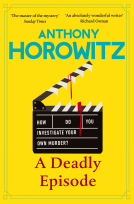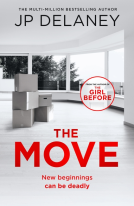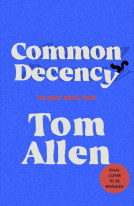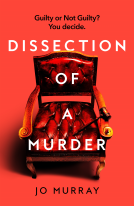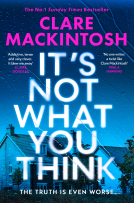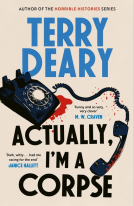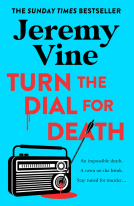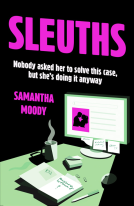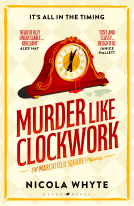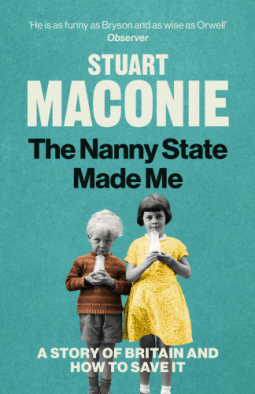
The Nanny State Made Me
A Story of Britain and How to Save it
by Stuart Maconie
This title was previously available on NetGalley and is now archived.
Send NetGalley books directly to your Kindle or Kindle app
1
To read on a Kindle or Kindle app, please add kindle@netgalley.com as an approved email address to receive files in your Amazon account. Click here for step-by-step instructions.
2
Also find your Kindle email address within your Amazon account, and enter it here.
Pub Date 5 Mar 2020 | Archive Date 31 May 2020
Penguin Random House UK, Ebury Publishing | Ebury Press
Talking about this book? Use #TheNannyStateMadeMe #NetGalley. More hashtag tips!
Description
'He is as funny as Bryson and as wise as Orwell' Observer
It was the spirit of our finest hour, the backbone of our post-war greatness, and it promoted some of the boldest and most brilliant schemes this isle has ever produced: it was the Welfare State, and it made you and I. But now it's under threat, and we need to save it.
In this timely and provocative book, Stuart Maconie tells Britain’s Welfare State story through his own history of growing up as a northern working class boy. What was so bad about properly funded hospitals, decent working conditions and affordable houses? And what was so wrong about student grants, free eye tests and council houses? And where did it all go so wrong? Stuart looks toward Britain’s future, making an emotional case for believing in more than profit and loss; and championing a just, fairer society.
Available Editions
| EDITION | Other Format |
| ISBN | 9781529102413 |
| PRICE | £20.00 (GBP) |
| PAGES | 352 |
Average rating from 56 members
Featured Reviews
 Reviewer 534102
Reviewer 534102
Thank you so much for the chance to read an advance copy of this book - it was difficult to wait until March for its publication!
Stuart Maconie’s social histories are always fascinating, drawing parallels between what has gone before and the present day. Having grown up in the era (and area) he writes about here, so many things resonated with me. The narrative around the 1970s at the moment often paints a picture of unremitting grimness and despair so it is really refreshing to see the case made for it being a bit of a Golden Age for the welfare state. Of course, this wasn’t true of everywhere, but where it worked well, it provided many opportunities for the working classes that have been gradually, stealthily, dismantled since. So what’s left can appear a bit grey and oppressive, because as he points out, it needs investment, engagement and commitment to make it successful.
As always, he includes plenty of references to other voices and work which can be followed up. I felt Caitlin Moran was given a tad too much airtime (she’s not the only social commentator in town, after all) but I’m not going to dock a star for that, because the rest is just a superb unpicking of post-war policy and vision and an absolute thought-provoking wonder to read.
I found the sections on Education and Libraries the most interesting, because they reflect my working life, the roots of which are entrenched in precisely the system he describes. They were also the saddest sections when you look back at what libraries were originally intended to be and how they are the downtrodden, underfunded neglected mess they are now.
 Reviewer 599455
Reviewer 599455
Many thanks to the author, publisher and Netgalley for a free ARC of this ebook. What a great read! Maconie is a very well known and respected broadcaster. He also writes in a engaging and informative way. In this book he explores the past political movements which have given Britain the substance and survivability that I so hope it still has today. Some will find this an uncomfortable read, it will depend on your personal beliefs and what you uphold as being a caring society. I highly recommend this book.
 Librarian 431790
Librarian 431790
I am always interested in book about social history and appreciated this one.
The style of writing is pleasant and it makes you understand what the welfare in the 70s.
It's a well researched and interesting book and even if I do not always agree with the writer's idea it's a book that gives a lot of food for thought.
Recommended.
Many thanks to the publisher and Netgalley for this ARC, all opinions are mine.
 Michael J, Educator
Michael J, Educator
As Stuart Maconie admits early on, nobody who is not already at least partly convinced of the importance of the public sector is going to be converted by this book. Even more politically motivated than his last book, Long Road from Jarrow, this is an engaging and entertaining account of the history and current position of the 'nanny state' in the UK. Covering vital areas such as education, libraries, health, transport with wit, generosity and real concern for the future, he is very effective at capturing the increased mean-spiritedness and atomisation that has characterised the last 40 years or so in the UK in general and the last 10 in England in particular. You would have to be very hard-hearted or blinkered to believe that we not lost an awful lot as a result.
Nostalgic and galvanising paean to Britain before it shuts up shop altogether
The Nanny State Made Me covers the trends of British politics from post-war social reform to current day career politicians. As Maconie is quick to point out early on in his polemic, the term ‘the nanny state’ was coined as a dismissal of over-interference by the state on the personal lives of the electorate. Yet he argues that the state’s progressive policies as we recovered from the war challenged the established order and brought about a golden era.
Those most likely to pick up The Nanny State Made Me will already be sympathetic to Maconie’s views. The purpose of his book, therefore, is to spur his readers into action before the hard-won gains made by The Nanny State, including the National Health Service, are lost forever.
Maconie writes with the voice of the people, but it is a voice that is informed, reasoned and full of enthusiasm. He backs up his statements with apposite references and anecdotes. For me, his argument most struck a chord in the chapter given over to libraries and literacy. One poignant example given was the Chinese government’s realisation, according to Neil Gaiman, that innovation in technology and science came through an exposure to science fiction and fantasy in childhood. Also, the American prison service’s algorithm used for planning future need for prison accommodation is based on the direct correlation between illiteracy and incarceration.
Stand with Maconie. Defend every Briton's right to a good education, an effective health service and affordable housing, as well as free access to books and green space.
My thanks to NetGalley and Penguin Random House UK, Ebury Publishing, for the ARC.
 Gillian F, Reviewer
Gillian F, Reviewer
This was a nostalgic walk down memory lane for me. It brought back so many childhood memories of how life used to be, growing up in the 60’s/70’s.
As an adult now, it made things clearer. Events and occurrences, history and politics that I was then too young to understand, have been given clarity by reading this book.
It made me think back to when life seemed uncomplicated - until it was made so by the growing up process.
It’s a great read and everyone who grew up at that time, in Britain, should read it. It felt like coming home and there’s a good bit of humour and warmth in it too. I loved it.
 Pam C, Reviewer
Pam C, Reviewer
I grew up with Thatcher and Maconie in the north east of England and was interested to see what he had to say. A lot of his opinions resonate, or I can at least see where he is coming from. A slow read but only because I wanted to absorb the detail or went back to read bits. Arguably Maconie has picked the research to back himself up but doesn't every writer? I definitely agree that five years ago I would never have expected to see the buffoon which is Boris as PM. A truly unbelievable state of affairs. Britain might not be as great as it once was but we can be proud of ourselves if we only see the way to making the NHS, schools, libraries, housing work for the people instead of for managers, stopping tinkering and fiddling for the sake of it and investing in the nation and its future. That stands regardless of whether someone voted Leave or Remain. The deed is done and now we must embrace self-care as a nation. Machine's book is a good place to start.
 stephen h, Reviewer
stephen h, Reviewer
This book looks at the state or welfare state and how it helps and made people (cira 1945-1979) and Maconie with his social history wit and charm navigates us through different parts of what was coined "The Nanny State" and how it has been eroded and chipped away at since the sweeping election of the Torys in 1979. As it looks at the NHS, schools, transport, leisure, social housing and how the labour government of Atlee tried to elevate the problems of poverty, ill health in establishing the welfare state. Enjoyed this book and makes you realise to those who grew up in the period pre 1979 how lucky they were.
 Lesley N, Reviewer
Lesley N, Reviewer
Although I am not a socialist or even a Labour supporter I found myself agreeing with many of the arguments in Stuart Maconie's latest book. Most of the stories and examples are from the north of England, but that is to be expected as Maconie is a northerner and many of the issues do not affect the more affluent SE in such a widespread way. In particular, the privatisation of the railways and buses was probably more cataclysmic than Beeching's cuts. The writing style is pretty accessible but it still took a long time to read this book, possibly because it is so thought provoking. Worth reading.
 Heather R, Reviewer
Heather R, Reviewer
I was delighted to be able to read this book, as I have enjoyed many of the author's other books, and I was interested to read his views on the Welfare State. The book didn't disappoint. It is written in a very readable style, as usual, and although I don't agree with the author's political view, it is hard to argue that the Welfare State, probably this country's greatest achievement in modern times, is being dismantled, and we as a society are the poorer for it. Whilst I don't agree that the 1970's were a great period for Britain, and I certainly don't agree with the author that unions holding the country to ransom was acceptable, I defy anyone not to feel sad that many of the things we took for granted in the 70's are no longer available for ordinary people.I would definitely recommend this excellent book.
Our lives are full to the brim with knowledge and wondrous opportunities that aren’t down to private enterprise but to the unique faculties & provisions that the state has provided for decades. Generations of citizens have had their lives enriched with the provisions of the NHS, public libraries, education and green spaces. We need to protect them at all costs as the privatisation of the railways and utilities companies have shown to the detriment of those industries. We are constantly told by certain sections of society that “The Nanny State” is destroying us when in fact it’s the naysayers that are robbing us of the true gems of our nation.
Maconie is a modern day oracle that you know you can trust. His wise words and dedicated research will have you nodding along in agreement and yet shaking your head in disgust at the way the Conservative governments and the media have twisted what the state has actually done and should continue to do.
I was elated to receive this ARC from the publishers as I have been eagerly awaiting the publication of this book and will be happily buying a print copy for my collection.
 Vanessa R, Reviewer
Vanessa R, Reviewer
The Welfare State. How it shaped post-war Britain, how it coloured the lives of those who grew up in it. And how we need to save it.
Absolutely compelling
Have you every complained about paying the TV licence, or supported the idea of nationalising the rail service again? If you have (or even if you haven’t, but you use public services) then this book is for you.
Stuart Maconie looks into the ‘Nanny State’, the derogatory term used for public or nationalised services by people with money, people in power or, as Maconie says “people who had nannies”, “rich and privileged figures, mostly men, [who] have no need of the simple things this book celebrates”.
The nanny state means so much more to ordinary people like you and me, people who have found ourselves “in doctors’ waiting rooms, on the muddied pitch, on the swings in the park or in the noisy chaos of the baths on a Saturday morning”. As a voracious book worm, from a working class family, I was solely reliant on my local library to feed my need to read. My family couldn’t afford to buy books, but I got to borrow them. Hundreds, probably thousands of them. I am acutely aware that this option is not open to so many children these days and it breaks my heart.
Maconie asks how have we allowed the gradual destruction of our public services and looks into the demonisation of those using said services, particularly those drawing benefits. Maconie asks if it is the prejudice of the rich elite which is being fed to those of us not in this very small group: “Prejudice is something you have to be carefully taught ... no-one’s born with this stuff. You need to put in the hours. You have to pick it up as you go along, even the mild varieties of snobbery “. This prejudice is taught by the media run by medial moguls, the same men who are best buds with the men in power who are in charge of deciding what to do with these services.
Where would many of us be without the NHS, without public education, without swimming baths and libraries and parks? Many people rely on council housing and public transport and social security benefits to survive. And looking at the outstanding ratings and reviews they enjoy, who hasn’t benefited from watching BBC television programmes or listening to their radio channels.
So, like the author, I am proud that the Nanny State made me. Ironically, I am now a small cog in the large machine that is the much derided ‘Nanny State. And I couldn’t be more proud.
 Reviewer 412739
Reviewer 412739
I enjoyed the premise of this book. Being of a similar age to Stuart everything resonated with me. Dole, NHS, Miners etc. Particularly the privatisation of everything by the then Conservative government - water, railways etc. Was it for the greater good - definitely not - where are we now?????????
Stories are important. We saw that in the whole Brexit debacle, a compelling narrative developed over time can move masses. In Britain the narrative has shifted disturbingly towards the destruction of the State, a refusal to accept the principle of community and a shared common good and the elevation of the individual in a competitive, every man for himself culture.
In The Nanny State Made Me Stuart Maconie starts to describe a different narrative for our country and it is an inspiring one that can hopefully take hold. Maconie reflects on his own life and the provisions that the now derided Nanny State gave him at different stages of life to nurture and sustain him. It’s a story of healthcare, education, public assets such as libraries, leisure centres and parks and a willingness to bridge the different stages of our lives through the Welfare State.
To do this the author visits key examples of the different institutions and services of the State. The first NHS hospital, the first comprehensive school, a library that remains at the heart of its community thanks to the time and energy, partly paid and considerably volunteered, by its librarian. It’s a history lesson in the greatest civic achievements of the country alongside personal memories of Maconie himself and others he meets along the way. A shared story of a better way of life.
As we sit now in the aftermath of a General Election that appears to have rejected the civic society there are surely lessons to be learned for those of us who value community and have an empathy with our common man. Too many of the attempts to counter catchy right wing soundbites have been negative, playing on fear of what might happen if things change, rather than positive stories about a shared, inclusive country in which we can all play a part and all reap the benefits.
Those who know Maconie’s other books will recognise the readable, conversational style that makes his writing very accessible. It’s a style suited to the messages he is putting across, not a lecture or a political rally but a fireside conversation with family and friends. There is a certainly a place for the Bevins and Benns to rally the crowds, but there is a need too for a gentler revolution, a change of heart away from the stinginess of the current political debate that seeks to disqualify the meeting of genuine need as “sponging” towards a common kindness.
We are being shaped by our politicians and media into a miserly country built on the worst facets of our history, but The Nanny State Made Me shows that we are at our best when we turn our innovation to a common cause that leaves no one behind. Stuart Maconie has written a timely book that gives those of us bereft at the election of a divisive government a glimmer of hope. It is time to take stock, to understand the past, recharge our batteries and reach out to our communities in the spirit of the post war consensus that made us.
 Bookseller 104788
Bookseller 104788
The rural bus route cuts are a disgrace so are the sad demise of our well loved local library’s.
It’s certainly an eye opener with the benefit fraud versus tax evasion.
It’s a sad fact that ten per cent of land from woodland to parks ,playing fields and local amenities have been sold quickly and quietly to private investors. More council houses are needed for those who are not on the top rungs of any ladder and who have children to bring up with good values and work ethics. How is this country to move forward with real sense of commitment and pride in its school system with so many educators feeling let down.
Maybe it’s time for a more even playing field, the Norwegians may not have all the answers but they are proud of their country, I wonder how many British can say the same?
A brilliant read , great straight talking, I love the way humour streams through the book. I will recommend highly.
 Susie F, Reviewer
Susie F, Reviewer
This is my first book by this author. Whilst I’m not of a similar age to Maconie, some of this I do feel is familiar. Obviously its based around politics, so this book might not be for some. But it also might be an eye opener for the younger generation. It talks about the benefit system, the highstreets, the NHS and libraries as it all once was. Well written and definitely worth reading.
Thank you NetGalley for my complimentary copy in return for my honest review.
 Michelle B, Reviewer
Michelle B, Reviewer
I thoroughly enjoyed this book even though at times I was furious! (not at the book but at the actions of some politicians who are supposed to work for the betterment of the country)
The book was well structured, each section focussing on a different aspect of the ‘nanny state’ Each section was a satisfying combination of facts, figures & history alongside witty stories about the author’s experiences growing up.
The wit & humour of the author brought some light to what may have been a very dry topic if just given the history. I do suspect that the writing maybe viewed as somewhat one sided but it is a side of the argument against privatisation that is worth a listen. If only our current politicians would listen!
I would’ve given this 5 stars but found the arguments being repeated a little across each section.
On the whole though a really well written and enjoyable book about politics and society. I would highly recommend it.
I received a free copy of this book from netgalley, in return for an honest review.
 Jen L, Reviewer
Jen L, Reviewer
I was born a few years after Margaret Thatcher first became Prime Minister so my memories involve funding cuts being made to my school and my mother's worry over the introduction of the poll tax. Thankfully, this book is a reminder of the many wonderful things different governments have done for this country. It feels timely to have this reminder at a point where we need our current Government to step up and puts its people first.
Thank you to NetGalley and the publisher for providing me with a free e-copy of this book in exchange for my honest opinion.
Readers who liked this book also liked:
Elizabeth Arnott
General Fiction (Adult), Historical Fiction, Mystery & Thrillers
